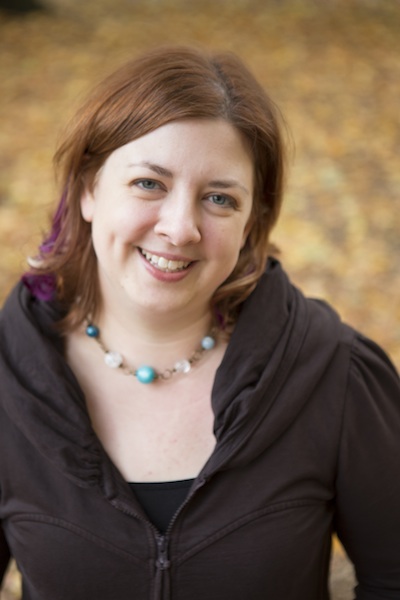Creative Fire: A kindling post
 Saturday, September 17, 2011 at 5:58PM
Saturday, September 17, 2011 at 5:58PM 
I'm working on the second installment of the "why/how to get an MFA in writing" series for the "In The Word Cellar" column, and it's slow going. I already have most of the information in my head, so writing that post should be fairly easy.
The problem is that I'm rusty. I've been busy with a lot of non-writing projects, and I haven't been making or finding the time to write much of anything. And so, inertia has set in. Putting words together comes relatively easily for me, but these days stringing together a few sentences feels like lifting heavy weights.
I've been talking to a few people about this phenomenon of the creative life. Why is starting so hard? I think it's all about inertia and energy.
You know about inertia, right? A body in motion wants to stay in motion. A body at rest wants to stay at rest. My creative muscles have been resting, and even though they feel restless and eager to move again, inertia gets in the way. Pushing through any kind of resistance is painful. Creative inertia is simply resistance, and it's what makes starting (or starting again) so unpleasant.
And now, for a fire analogy.
Last month James and I bought a new firepit for our patio. We got some wood and some fixin's for s'mores and mountain pies. Our first attempt to make a fire failed. We just couldn't get it going. We concluded that the wood must be bad, that it must have gotten wet. After all, we've built successful fires before.
(It should be noted that when I say "we" I really mean James. I'm a wee bit pyrophobic. I do not build fires. I don't even light those flimsy little matches that come in matchbooks. I don't need my fingertips quite that close to an open flame, thankyouverymuch. Give me a box of sturdy wooden matches, and I might be able to light a candle or two.)
A week later, and armed with new wood, "we" attempted another fire. This one finally got going, but it took a damn long time. (I was tempted to start eating the filling for the mountain pies straight out of the tin.) But once the blaze started, whoo-doggie, it was easy as pie (cherry) to keep it burning.
James concluded that what we were missing was the kindling.
We had the tinder (the firestarter), and we had the fuel (the logs), but we didn't have the kindling, which are smaller pieces of wood that will catch fire from the tinder and make the fire hot enough to ignite the bigger logs.
It's all about the energy.
The kindling phase is often where I stall out creatively.
I'll have a burst of an idea. It burns fast and bright, like tinder.
Then it seems to flicker out. The idea is good, but I struggle with bulding the momentum or heat to truly get rolling. If I don't push through this phase, my start becomes a stop.
But if I can just keep going, kindling the flames of creativity, the larger pieces of the project will catch the flame and start burning.
Throw another log on the fire: That's the easy part. When the fire is already hot and crackly, you don't have to do much to keep it going.
I suppose this is a kindling post. I have lots of pieces of creative tinder lounging about in my head (and in draft blog posts). But the firepit is cold, and the logs may be a teensy bit damp. So I need to do something to warm up.
This is why I always say that writing begets more writing. Getting started is the hardest part for many of the artists and writers that I know. (It's not always the case, of course. Some people are great starters who struggle with other phases of the creative process, such as finishing. But that's another post.)
So today I journaled and wrote this little kindling post. Tonight I may edit an existing essay, and tomorrow I hope to start a new one that's been roaming around in my head for weeks. I'll also try to make time to read most days, because reading makes me want to write. And later this week, I'll finish that post about choosing an MFA program.
How do you fan the flames of creativity? What do you use as kindling? I hope you'll share in the comments.
** ** **
 This is probably a good time to mention that I'm offering Alchemy Daily again this November. You get 30 days of writing prompts and bits of inspiration delivered to your inbox. There will also be a private online forum where you can to connect with other Alchemists. Plus, you'll receive an ebooklet of all the prompts so you can use them as tinder or kindling whenever you like.
This is probably a good time to mention that I'm offering Alchemy Daily again this November. You get 30 days of writing prompts and bits of inspiration delivered to your inbox. There will also be a private online forum where you can to connect with other Alchemists. Plus, you'll receive an ebooklet of all the prompts so you can use them as tinder or kindling whenever you like.
I've written before about my somewhat ambivalent relationship with writing prompts, as well as my love-hate relationship with structure and deadlines. But the more seriously I take my writing life, the more I recognize that I need things like prompts and deadlines, especially during the times when I've let the creative fire go out. (Maybe prompts are the tinder and deadlines are the kindling? I don't want to take the metaphor too far.)





